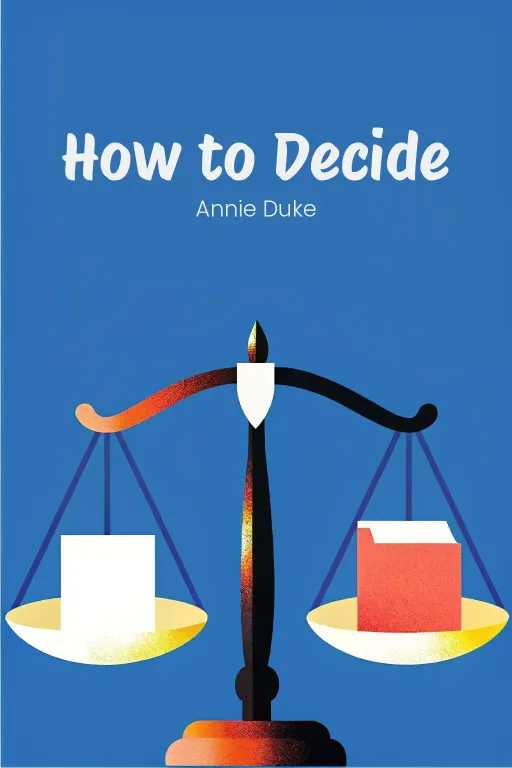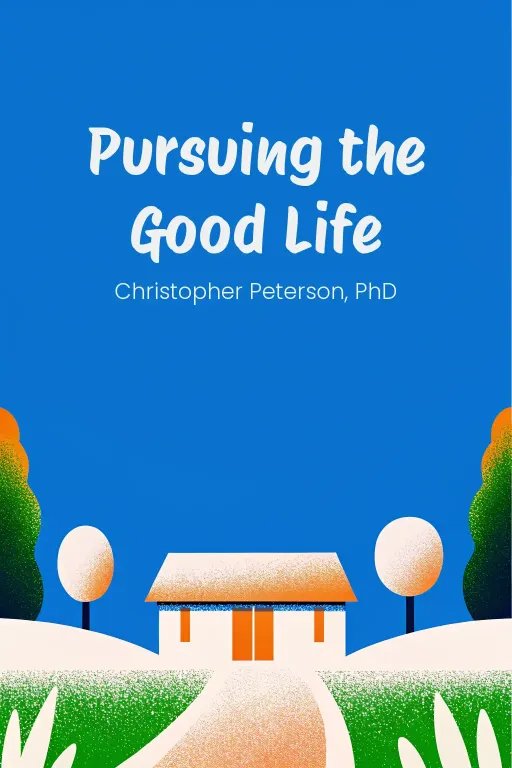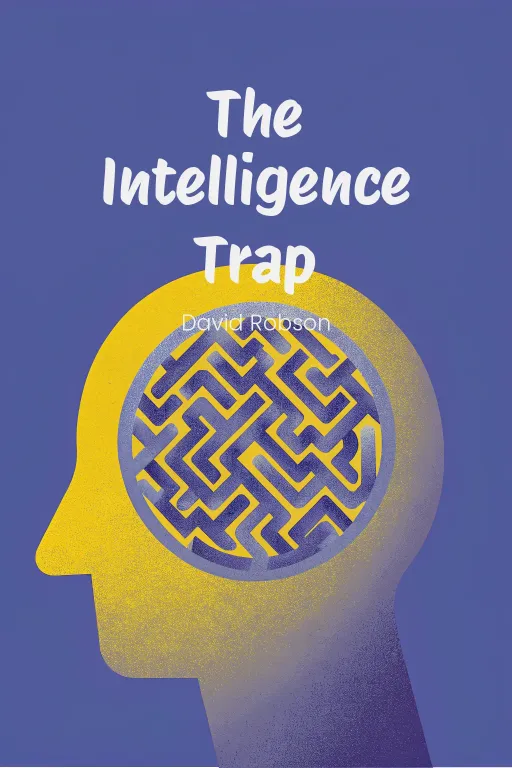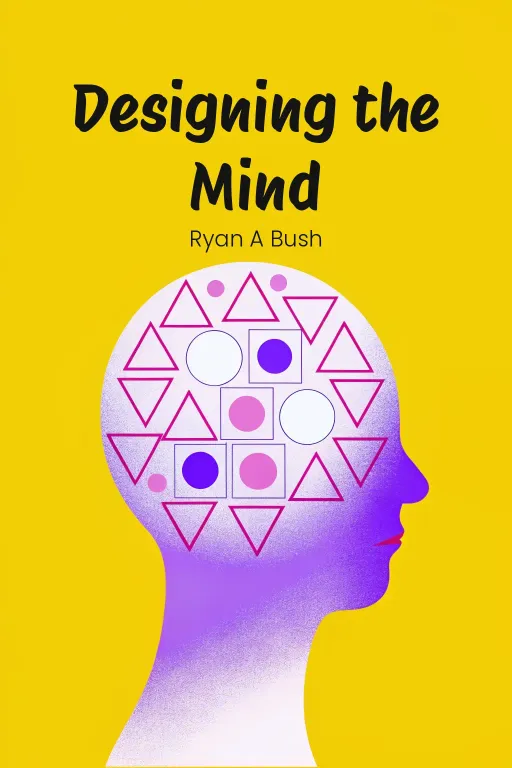
Think Smarter: Your Brain's Hidden Power
Podcast by The Mindful Minute with Autumn and Rachel
The Science of Self-Awareness
Introduction
Part 1
Autumn: Hey everyone, welcome back! Today, we're diving into something really interesting – self-awareness. You know, that moment when you catch yourself wondering, "Why did I “do” that?" or "What was I even thinking?" That's the magic of metacognition at work – or, as some people call it, "thinking about thinking." Rachel: Right. Because if there's one thing humans love more than talking about themselves, it's examining why we're talking about ourselves. But seriously, Autumn, what are we really talking about here? Is this just another excuse to sound profound? Autumn: Not at all, Rachel! We are referencing Stephen M. Fleming's book, Know Thyself: The Science of Self-Awareness. The author explores just how we monitor and evaluate our own thoughts and decisions. The book goes into neuroscience, psychology, philosophy, and even machine learning to show how self-awareness not only helps us as individuals but also shapes society. Rachel: Sounds heavy. So, does Fleming address stuff like, "Why did I think that oversized avocado-shaped stress ball was a responsible purchase?" Autumn: In a way, yes! He explains how self-awareness affects decisions, learning, and even interactions with others. Beyond that, the book discusses how our metacognitive abilities are changing in the age of technology. Rachel: So, it’s like a blend of brain science, a little philosophy, and a word of caution about our gadgets learning a little too much. I understand. So what are we covering today? Autumn: We're breaking it down into three main areas. First, we'll explore how metacognition shapes self-understanding—why "thinking about thinking" is a game-changer for self-awareness. Second, we'll discuss its applications, from learning to mental health, and how to apply these insights daily. Finally, we'll zoom out to the bigger picture – how understanding our own minds helps us handle challenges like the rise of AI and the complexities of our world. Rachel: So, we’re starting inside our own heads and expanding outwards to the world. Sounds about right. Let's jump in.
Metacognition and Self-Awareness
Part 2
Autumn: Okay, let’s dive in. Metacognition. Simply put, it's “thinking about thinking.” It's like your brain taking a step back to ask, "Did I get that right? Am I sure about this? Should I rethink this?" It sounds complex, but we all do it, all the time, often without even realizing. Rachel: So, you're saying metacognition is like having a little internal critic constantly judging our thoughts? That's… well, reassuring, I guess, but also a bit exhausting. Does my brain really need to be that involved? Autumn: It's less about micromanaging and more about monitoring. Think of it as an internal feedback loop. Neuroscience really helps illustrate this. The prefrontal cortex, one of the most developed parts of our brain, is key to metacognition. It's what allows us to assess our confidence in a decision or realize we’ve made a mistake. For example, when answering a trivia question, if you think the capital of Australia is Sydney, that moment of hesitation, "Wait, is that right?" is your prefrontal cortex flagging uncertainty and telling you to double-check. Rachel: Okay, but what about the times when people just charge ahead without thinking? Like when you're absolutely certain you can build IKEA furniture without the instructions, and… well, you know how that ends. Autumn: Ah, classic overconfidence! That happens when our metacognitive system isn't fully developed, or it gets temporarily overridden. Fleming highlights how metacognition safeguards against overconfidence, but it's not foolproof. Some people experience the Dunning-Kruger effect, where they overestimate their abilities simply because they lack the self-awareness to see their shortcomings. As the saying goes, "The more you know, the more you realize you don't know." Rachel: So, the people who think they're geniuses might actually be the least self-aware? That's… slightly disturbing. Can metacognition actually be improved, or are we just stuck with what we've got? Autumn: Absolutely, it's trainable! Studies show that practices like mindfulness, journaling, or even just reflecting on your day can strengthen your metacognitive awareness. The key is to get into the habit of asking yourself questions: "Why do I believe this? Was this the best decision? What could I have done differently?" These might seem like small things, but over time, they really sharpen your self-monitoring skills. Rachel: So metacognition is like exercising a mental muscle. Got it. But let's talk about this “error detection” system. How does the brain handle mistakes in real-time? Autumn: It's a great question. One of the most interesting parts of metacognition is how it helps us respond to errors. Let’s talk about the "Oh Shit!" response – and yes, that's an actual term in neuroscience! Rachel: Wait, are you serious? Autumn: I am! The term is a bit cheeky, but the science is solid. It describes the neural signal that fires when there’s a mismatch between your expectation and reality. Like when you reach for a glass of water, but it's further away than you thought. That signal activates the anterior cingulate cortex, which works with the prefrontal cortex to flag the mistake and adjust your actions. That’s why you can correct an error almost instantly. Rachel: So our brains are constantly running mini quality-control checks? That explains why I feel a sudden sense of dread every time I accidentally hit "Reply All" on an email. Autumn: Exactly! And that self-correcting mechanism allows us to improve and adapt. Without it, we’d keep making the same mistakes without ever learning from them. This ability to recognize and adjust mistakes – whether it’s something small like fixing a typo or something big like admitting a bad decision – is really a cornerstone of self-awareness. Rachel: Okay, so we humans have this built-in error detection. But what about other animals? Are we the only species that does this kind of high-level self-monitoring? Autumn: Surprisingly, no. Animals like dolphins and primates also show signs of metacognitive behavior. There’s this incredible experiment with a dolphin named Natua. He was trained to identify high and low-pitched sounds by pressing levers. Later, they added a third lever that let him "opt-out" if he wasn’t confident. And when the sounds were ambiguous, Natua often used that skip lever. That hesitation suggests he knew his own uncertainty – a key sign of metacognition. Rachel: A dolphin decided to skip because he wasn't feeling confident? That's pretty amazing. But what does that mean for us? Is metacognition something humans have refined, or is it part of a bigger evolutionary picture? Autumn: That's one of the really fascinating questions Fleming explores. It seems like metacognition has evolved as a survival mechanism across species. For dolphins, it can help them navigate complex environments or make safer decisions. In humans, self-awareness has evolved into more abstract forms, like reflecting on the past, planning for the future, or even moral reasoning. But at its core, metacognition serves the same basic purpose – it helps living beings optimize their actions and adapt to uncertainty. Rachel: So, the next time I’m agonizing over whether to order a double espresso or a venti mocha, I can tell myself I'm exhibiting "adaptive uncertainty management." Sounds fancy enough to justify my indecision. Autumn: <Laughs> Something like that! But all jokes aside, understanding metacognition isn’t just about making better decisions—it’s also about being more compassionate toward ourselves and others. Recognizing your limitations is empowering. It creates room for growth, collaboration, and even a deeper appreciation for what makes us human. Or, in Natua's case, what makes us dolphin!
Practical Applications of Metacognition
Part 3
Autumn: Understanding metacognition gives us so many practical tools. So, Rachel, how do we take this… this fascinating concept of “thinking about thinking” and actually use it in our lives? Rachel: Exactly! How do we go from the abstract to the concrete? Autumn: Great question, Rachel! That's where metacognition “really” shines—its practical applications. We're talking about education, where it helps students learn better, therapy, where it becomes a tool for mental well-being, and even teamwork, where it strengthens collaboration. This builds on what we've discussed about what metacognition is, and moves into how it can reshape real-world scenarios. Maybe let's start with education, since that's a field everyone has some experience with. Rachel: Education... the land of caffeine-fueled all-nighters and forgetting everything five minutes after the exam. So, where does metacognition fit into that chaos? What's “thinking about thinking” got to do with students who are just trying to survive finals? Autumn: Well, Rachel, one major contribution is helping students evaluate and refine their learning strategies. It shifts them from just memorizing facts to more effective and reflective learning practices. Take Jane, for example. She's an engineering student facing a mountain of material before her exam. Instead of blindly powering through, she starts reflecting on how she learns best. Rachel: Let me guess – she realizes highlighting every single word in the textbook isn't working, and she burns her notes in a ritualistic bonfire? Autumn: <Laughs> Not quite! Jane realizes that practice problems—not endless note-reading—help her understand and remember concepts better. She also notices she can focus more effectively in a quiet library than a loud coffee shop. By thinking critically about her study habits, she optimizes her time and she improves her retention. It's a perfect example of metacognition in action—turning aimless effort into purposeful learning. Rachel: So, it's like cutting through the “study harder” noise and going straight to “study smarter.” But doesn't this kind of self-reflection come naturally? Or are schools supposed to be teaching kids how to think about their thinking? Autumn: Great point! Schools absolutely should be fostering these skills, but it's often overlooked. The focus tends to be on what to learn rather than how to learn. That's why incorporating metacognitive strategies like self-assessment can be transformational. Plus, research backs it up! The Economist even points out that learning how to think is crucial in a world where information is everywhere but critical thinking is in short supply. Rachel: Okay, metacognition could seriously improve how we study. But what about when things get more complicated, like mental health? Because, honestly, asking yourself "Why do I feel this way?" in a tough moment sounds… easier said than done. Autumn: You're right. Metacognition isn't just a tool; it's a skill that takes time to develop, especially in emotionally charged situations. Which brings us to therapy, where metacognition shows up through cognitive behavioral therapy, or CBT. It's a method grounded in teaching people to recognize and reflect on their own thoughts and emotions. Rachel: CBT. Is that the one where the therapist has you keep a journal? Like a guided “Dear Diary”? Autumn: Not quite “Dear Diary,” but, yes, journaling can be involved. Let's say someone is dealing with anxiety. Their immediate thoughts might be, "I'm going to fail this, and everything's going to fall apart." Right? And these thoughts feel like absolute truths in the moment. In CBT, the therapist guides the person to identify those thoughts, write them down, and then ask questions. Questions like, "What evidence do I have for this? Is it really as catastrophic as it feels?" They're essentially teaching their brain to pause and reflect rather than reacting automatically. Rachel: So, it’s like giving your anxious brain a chance to negotiate, instead of just hitting the panic button? Makes sense. But wouldn't that only work for people who are already… pretty self-aware? Autumn: Actually, that's the beauty of CBT: it's designed to help build that self-awareness, step by step. A therapist might start small, like asking someone to track their triggers. Over time, this process helps the person tune into their own mental patterns, and learn how to manage them. The benefits aren't limited to anxiety or depression either. This kind of self-monitoring creates long-term emotional resilience, enabling people to deal with future challenges. Rachel: Okay, you're selling me on this. But let's switch gears for a second. You've brought up education and therapy—more individual experiences. What about metacognition in group settings? Because if you've ever been in a meeting where everyone thinks they're an expert, you know how messy group dynamics can get. Autumn: Oh, absolutely. That's where shared metacognitive awareness becomes critical, especially in teamwork. There's a fascinating study by Bahador Bahrami and his team that illustrates this perfectly. They brought pairs of participants into a lab and asked them to make judgments about visual stimuli—like which patch of dots on a screen looked brighter. After giving their individual answers, the pairs had to discuss and agree on a final decision. Rachel: Let me guess, the pairs who actually talked about their confidence levels did better than the ones who just shouted, “I'm right, believe me!”? Autumn: Exactly! The pairs that shared their confidence effectively–like one person saying, "I'm pretty certain," and the other admitting, "I'm not so sure"—consistently outperformed even the best individual participants. It showed that aligning metacognitive insights, like confidence and uncertainty, strengthens group decision-making. This is essential in high-stakes scenarios, from boardroom strategy sessions to emergency medical procedures. Rachel: So, it's not just about knowing your own limitations; it's about being able to communicate them, without ego getting in the way. Makes sense. But how do you get a group of people, with wildly different levels of metacognitive awareness, to work together smoothly? Autumn: It starts with fostering an environment where people feel safe admitting when they're unsure. Encouraging humility and curiosity can go a long way. Think about asking, "What do you think I might be missing?" or "Tell me why you're confident in this approach." Questions like these not only improve the quality of decisions, but they also build trust. Rachel: So, good teamwork comes down to confidence sharing and ego control. Noted. But if metacognition in collaboration is so effective, why doesn't it come more naturally? Autumn: Because most people haven't been taught to think about how they think or to articulate it. Enhancing metacognitive communication—whether through training or practice—takes effort. But the results—a more efficient study strategy, a mental health breakthrough, or a flawless team project—are absolutely worth it!
Societal and Technological Integration
Part 4
Autumn: The societal impact of metacognition becomes even more significant when we consider how it helps us navigate modern challenges like technology and, of course, misinformation. We’ve talked about how metacognition affects personal insight and teamwork—but now we’re taking it to the big leagues: society, technology, AI. How does metacognition even begin to tackle the complexities of such massive systems? Rachel: Right? It's quite a jump in scale. Autumn: It is! We’re expanding the scope. We’re not just talking about individual reflection anymore. This moves us into the broader perspective of societal and technological integration. It’s about how metacognitive self-awareness interacts with technology and misinformation, and why it’s increasingly essential for progress in this digital age. Shall we start with artificial intelligence and its peculiar relationship with metacognition? Rachel: Naturally—because what better place to start than thinking about thinking machines? Tell me, Autumn, is AI secretly judging all my questionable Google searches? Autumn: <Laughs> Funny, but not quite. Actually, one of the most critical differences between us and AI is that, as advanced as AI systems are, they completely lack metacognition. They can process enormous datasets, identify patterns, and even outperform humans in specific tasks, but they cannot reflect on their decisions, evaluate uncertainties, or explain their logic in human terms. Rachel: So, they’re super competent but introspectively clueless? Got it. Let me guess—this becomes a problem when we start trusting machines to make decisions we don’t fully understand ourselves. Autumn: Exactly. Take DeepMind’s AlphaGo, for example. It’s a brilliant piece of AI engineering; so much so that it defeated one of the world’s top “Go” players—Lee Sedol. But here’s the kicker: AlphaGo couldn’t explain why it made the incredible moves it did. It operated on sophisticated algorithms and massive data training, but it couldn’t evaluate or articulate the reasoning behind those moves. And that’s fine in the context of a board game. But imagine that same lack of self-awareness being applied to something like recommending prison sentences. Rachel: Ah, you mean real-life stakes where “Sorry, I just went with my gut!” doesn’t cut it. So if an AI in the justice system predicts recidivism rates or suggests sentences, and it’s working off biased data, we wouldn’t even know how or where it went wrong. Um… that sounds less than ideal. Autumn: Precisely—and there are real-world examples of these cases. AI systems in law enforcement and criminal justice have, in some instances, reinforced systemic biases embedded in historical data. Without the capacity to reflect or self-regulate, these systems wield immense power without the accountability that comes from understanding their own limitations. Rachel: Which means the burden of introspection—of metacognition—falls entirely on us, the humans. We’ve got to critically assess the outputs of these systems, question the assumptions baked into them, and resist blind trust, right? Autumn: Right again. But it’s easier said than done, isn’t it? Often, people see the complexity of AI as a black box, and there’s this dangerous tendency to ascribe excessive confidence to the “machine’s wisdom.” That’s why fostering human metacognitive awareness is so critical. We need to ask constantly, “Why is the system recommending this? What potential biases might be influencing it? Can we verify the logic guiding its decisions?” Rachel: Okay, so let's say humans rise to the challenge and develop better metacognitive skills. Does that mean we’re completely steering away from the dystopia of machine-driven errors? Or is there another angle here—like making the machines themselves more self-aware? Autumn: Good point! Some researchers are exploring ways to give AI a kind of rudimentary metacognition. Imagine adding a meta-layer to algorithms, enabling them to assess their own outputs or flag when they’re uncertain. For example, some experimental AI models now try to estimate their confidence levels. Like when predicting a medical diagnosis, they could indicate areas where they simply lack the data to make a solid conclusion. Rachel: So, the machine admits, “I think it’s X, but I’m only 70% sure?” That definitely seems like progress. But isn’t there a Pandora’s Box situation here? Like, if we edge toward giving machines introspection, do we also edge toward questioning who—or what—is responsible when something goes terribly wrong? Autumn: Exactly. The ethical implications are enormous. If an AI achieves limited metacognitive awareness, do we start holding it accountable for its decisions in some way? Or does the responsibility always circle back to its human creators? Consider autonomous vehicles. If a self-driving car causes an accident, was it the fault of the AI’s programming, the engineers who built it, or the system’s inability to self-correct? Rachel: And that's not even touching the sci-fi question of fully aware machines asking, “Wait, why am I programmed this way?” Okay, let’s leave that one alone for now. What about the other massive societal challenge—misinformation? How does metacognition stand a chance in the absolute tidal wave of fake news and echo chambers? Autumn: Misinformation thrives in environments where metacognition and, frankly, intellectual humility are in short supply. Here’s a fascinating study that illustrates this. Researchers Lars Hall and Petter Johansson ran an experiment where people chose between two options—say, two different jams. But here’s the twist: after participants made their choice, the researchers secretly swapped the jars. And get this: most participants didn’t even notice! What’s more, they confidently justified why they chose the option they didn’t pick. Rachel: Wait, they explained why they liked jam that wasn’t even their choice? That’s wild! Are we really that prone to fooling ourselves? Autumn: We are, and this phenomenon is called “choice blindness.” It exposes just how easily we fabricate explanations to fit our decisions, even when they’re wrong. In the online sphere, this effect compounds in echo chambers. Without pausing to question the accuracy of posts—or asking why we believe them—people confidently spread misinformation. It’s one of the reasons platforms like social media can reinforce biases and harden polarized views. Rachel: And, let me guess—if you lack the metacognition to realize you’re wrong in the first place, double-checking isn’t even on your radar. Sounds like fertile ground for misinformation to take root and thrive. Autumn: Precisely. That’s why intellectual humility—a key aspect of metacognition—is so important. Recognizing the limits of your knowledge and being open to revising your views creates a mental safeguard against blind overconfidence. Educational programs centered on media literacy, for example, have been gaining prominence for teaching people how to fact-check sources and reflect critically before reposting anything online. Rachel: So the battle against misinformation isn’t just about catching falsehoods; it’s about cultivating a mindset that questions them in the first place. In a world flooded by information, teaching people to think critically sounds more urgent than ever. Autumn: Absolutely. The larger takeaway here, Rachel, is that metacognition empowers us to grapple with all these modern challenges, whether it’s responsibly engaging with AI or safeguarding the truth in an age of endless scrolling. It reminds us of a simple yet profound reality: the way we think about thinking shapes the society we build.
Conclusion
Part 5
Autumn: So, to wrap things up, we've “really” dug into metacognition today—this amazing human ability to think about how we think. And it's clear it touches everything, right? From understanding why we make certain choices and how we feel, to totally changing how we teach and treat mental health issues. Even when we're talking about AI and misinformation, metacognition is key. It’s not just some brainy concept—it’s a super practical tool that helps us grow and bounce back. Rachel: Yeah, and the crazy thing is how fundamental it seems to be. Whether you're talking about a dolphin double-checking its hearing during a test or AI trying to figure out how sure it is about something, metacognition is there. It helps us deal with the unknown and keeps us from getting too cocky. It’s like our brain’s own quality control system, keeping us from just sleepwalking through life...most of the time, anyway. Autumn: Exactly! But it's not something we can just assume we're good at. “Really” working on our metacognitive skills can change the game in terms of how we learn, how we work together, and how we tackle big global problems. It's a reminder that we should always be wondering why we think certain things, questioning what we take for granted, and being open to the idea that we might not know everything. Rachel: So, here's what I'm thinking: This week, everyone should try to take a little time to think about their thought processes. Like, how did you make that decision? How do you usually learn new things? How do you interact with people? Just ask yourself, "Why do I actually believe this? Could I have handled that situation better?" Turns out, thinking about thinking might just be the most human thing we do. Autumn: Definitely the most transformative! And remember, being aware of yourself isn't just about looking inward. It's about using what you find to make better decisions, connect with people on a deeper level, and build a world where we actually understand each other. So, keep asking those tough questions, keep exploring the depths of your own mind, and who knows what amazing things you'll discover? Rachel: Well said. Thanks for joining us today, everyone. Until next time, stay curious—about what you think, how your brain works, and maybe even why you like the music you like. Autumn: Take care, and happy thinking!









